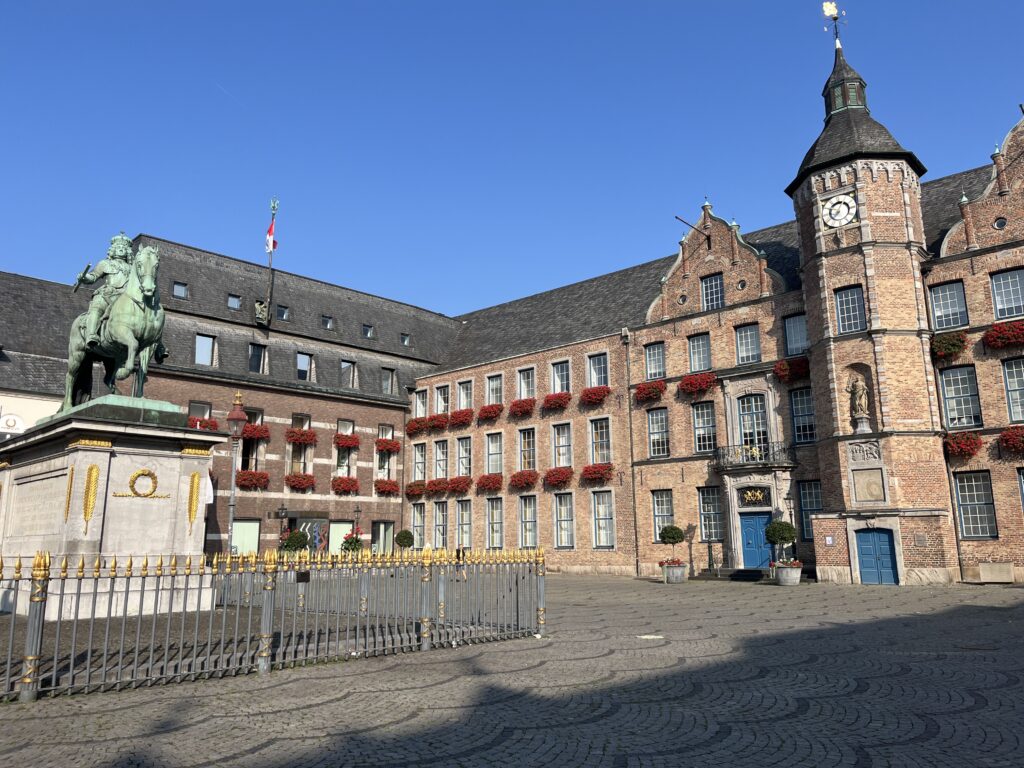The German History Society and the German Academic Exchange Service (DAAD) language course grant allowed me to attend the Internationale Sommerkurse at the Heinrich-Heine-Universität Düsseldorf. The course offered a great opportunity to revise and refresh my German language proficiency before beginning archival research and oral history interviews for my PhD project titled: ‘Transnational ties and cross-continental connections: A global history of the Neue Frauenbewegung (1968-1979)’.
As part of the course, I attended four hours of daily lessons covering German speaking, listening, reading, writing, and grammar. A placement test at the start of the course ensured that I was placed in a class with students of similar ability. Having studied German for four years as part of my joint honours BA (German and History), I joined the course with a good level of language proficiency. However, I lacked confidence, particularly in my oral communication ability.
Through the course, I have developed the German language skills incremental to the success of my doctoral project. Fine-tuning my reading comprehension, for example, is to the benefit of my study and analysis of archival documents relevant to the history of the Neue Frauenbewegung (West German feminist movement). Most importantly, the course placed great emphasis on spoken communication which allowed me to recall, practice, and develop my
speaking skills.
Before attending the Sommerkurse, I worried that my German language proficiency was not at a sufficient level to realise my desire to employ oral history as the key methodological approach in my project. Uncertainties around my ability to conduct fluent, cogent, and insightful oral history interviews in German threatened to prevent my aim of interviewing former activists of the Neue Frauenbewegung to gain insight into their subjective view of the national West German feminist movement and its role in an emerging global feminist movement. The consistent speaking practice involved in the Sommerkurse helped me to build trust in my understanding of the German language. Since completing the course, I have now successfully conducted four oral history interviews which I believe is linked to my attendance at the Sommerkurse where I cultivated and strengthened the language skills required for this consequential step in my doctoral research.
Charlotte Oakes holds a BA in German and History at the University of Warwick and an MA in Modern History at the University of St Andrews for which she was awarded the Stephen W Bonarjee Bequest Prize. Charlotte is currently a PhD candidate at the Centre for Women’s Studies at the University of York researching the global history of second-wave West German feminism.
